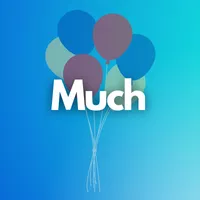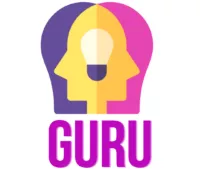Key Difference: Most people get confused when using the words because both look similar. But, truly they are not. There is a huge difference between these words. If you don’t know the differences, then keep calm. We will teach you. Much is used to represent uncountable nouns. Whereas, the word very refers to a large amount of something. Let’s see the contradictions between these words in this blog.
Much: How much money do you want?
Very: He is a very good man.
 |  |
Much:

Countless things.
When we are talking about uncountable nouns, we need to use the word “much.” For instance, we cannot count salt, sugar, seeds, rice, stars, etc. These uncountable things can be represented by the word much. Let’s see an example to make it clear. You added too much salt to the food. From this statement, we might understand that someone added a great amount of salt to the food.
For your better understanding, we come up with another example, that is I have so much work to do today. In this sentence, we understand that someone said that he/she has lots of work to finish today.
How Do We Spell the Word Much?
Phonetics pronunciation of the word Much is mʌtʃ. And this word sounds like the following audio.
Enunciation:
Syllables are phonological building blocks of words. It divides the words into parts that can help you read words more accurately. Let’s see how to split the word “much” using syllables. Learning syllables can also help you to spell words correctly.
- The word “Much” has only one syllable.
- It cannot be divided.
Using “Much” in sentences:
- We don’t need too much water.
- She doesn’t have much time to finish the test.
- Lilly said I feel much better now.
- The new medicine is much more effective than the older.
- He tells so much about you.
Very:

Extremely
The word “very” is used to indicate a large amount. It refers to the great extent of something. Let’s see an example to make it clear for you. Clara is a very good girl in this class. From this statement, we might understand that the girl Clara is an excellent student in this class. Here we come up with another example for your reference. He is very busy today. From this statement, we might understand that someone is too busy today.
How Do We Spell the Word Very?
The phonetics pronunciation of the word Very is ˈvɛri. And this word sounds like the following audio.
Enunciation:
Syllabification refers to the process of division of words into smaller parts. It is commonly known as syllables. With its help, you can easily read and spell the word accurately. Here, you will see how to split the word “Very” by syllables.
- The word “Very” has two syllables.
- It can be divided into “ver-y.“
Using “Very” in sentences:
- Thank you very much.
- She is very cute.
- I am very angry with you.
- He is very happy at his job.
- It is very disturbing.
Compare: Much Vs Very
This table will show you the contradiction between the words Much and Very.
| Much | Very | |
|---|---|---|
| Definition | Represent a great number of things that are not countable. | It refers to the high degree or large amount of something. |
| Synonyms | Plentiful, substantial, ample, a good deal of, copious, exceedingly | extremely, extra, immensely, vastly |
| Antonyms | Little | Slightly, sort of |
| Etymology | Middle English: shortened from muchel, from Old English micel (see mickle). | Middle English (as an adjective in the sense ‘real, genuine’): from Old French verai, based on Latin verus ‘true’. |
| Examples | I ate too much cake. We had so much fun in the park. How much money do you need? Thank you so much for your appreciation. Avoid hurting others as much as possible. | I am very much interested in drawing. Tom has a very cute doll. She is very intelligent. This is a very old car. He is very tall. |
Resources and References:
Resources: Cambridge Dictionary (Much, Very), Merriam-Webster (Much, Very), Collins Dictionary (Much, Very), Dictionary.com (Much, Very)
Reference: Dictionary.Cambridge.org[1], Merriam-Webster.com[2], CollinsDictionary.com[3], Dictionary.com[4].
